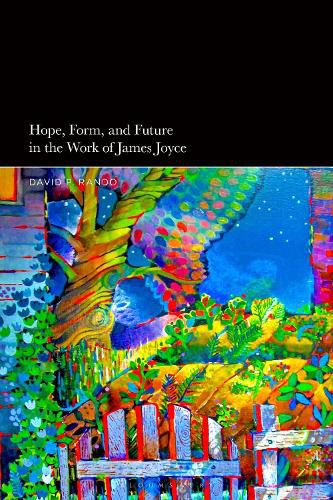Readings Newsletter
Become a Readings Member to make your shopping experience even easier.
Sign in or sign up for free!
You’re not far away from qualifying for FREE standard shipping within Australia
You’ve qualified for FREE standard shipping within Australia
The cart is loading…






Hope and future are not the terms with which James Joyce has usually been read, but this book paints a picture of Joyce’s fiction in which hope and future assume the primary colours.
Rando explores how Joyce’s texts, as early as Dubliners and A Portrait of the Artist as a Young Man, delineate a complex hope that is oriented toward the future with restlessness, dissatisfaction, and invention. He examines how Joyce envisions alternatives to the prevailing conventions of hope throughout his works and, in Ulysses and Finnegans Wake, develops formal techniques of spatializing hope to contemplate it from all sides.
Casting fresh light on the ways in which hope animates key aspects of Joyce’s approach to literary content and form, Rando moves beyond the limitations of negative critique and literary historicism to present a Joyce who thinks agilely about the future, politics, and possibility.
$9.00 standard shipping within Australia
FREE standard shipping within Australia for orders over $100.00
Express & International shipping calculated at checkout
Hope and future are not the terms with which James Joyce has usually been read, but this book paints a picture of Joyce’s fiction in which hope and future assume the primary colours.
Rando explores how Joyce’s texts, as early as Dubliners and A Portrait of the Artist as a Young Man, delineate a complex hope that is oriented toward the future with restlessness, dissatisfaction, and invention. He examines how Joyce envisions alternatives to the prevailing conventions of hope throughout his works and, in Ulysses and Finnegans Wake, develops formal techniques of spatializing hope to contemplate it from all sides.
Casting fresh light on the ways in which hope animates key aspects of Joyce’s approach to literary content and form, Rando moves beyond the limitations of negative critique and literary historicism to present a Joyce who thinks agilely about the future, politics, and possibility.